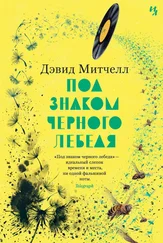Dean lifts an up-yours finger at his ex-employer.
Craxi makes a slashing gesture across his throat.
Out on D’Arblay Street with nowhere to go, Dean runs through the likely consequences of hurling half a brick through the window of the coffee shop. A police cell would solve his immediate housing dilemma, but a criminal record wouldn’t help in the long run. He goes into the telephone box on the street corner. The inside is littered with Sellotaped-on pieces of paper with girls’ names and phone numbers. He keeps his Fender close by, and his rucksack half propping open the door. Dean gets out a sixpence and leafs through his little black book. He’s moved to Bristol … I still owe him a fiver … he’s gone … Dean finds Rod Dempsey’s number. He doesn’t know Rod well, but he’s a fellow Gravesender. He opened a shop in Camden selling leather jackets and biker accessories last month. Dean dials the number, but nobody answers.
Now what?
Dean leaves the phone box. Freezing fog blurs edges, smudges the faces of passers-by, hazes neon signs – GIRLS! GIRLS! GIRLS! – and fills Dean’s lungs. He’s got fifteen shillings and threepence and two ways to spend it. He could walk down D’Arblay Street to Charing Cross Road, get a bus to London Bridge station and a train to Gravesend, wake up Ray, Shirl and their son, confess that Ray’s hard-earned fifty quid – which Shirl doesn’t know about – was nicked within ten minutes of Dean cashing the bank order, and ask to sleep on the sofa. But he can’t stay there for ever.
And tomorrow? Move back into Nan Moss and Bill’s? At the age of twenty-three. Later in the week, he’ll take the Fender back to Selmer’s Guitars and beg for a partial refund on what he’s already paid. Minus wear and tear. Rest in peace, Dean Moss the professional musician. Harry Moffat’ll find out, of course. And laugh his tits off .
Or … Dean looks down Brewer Street, to the clubs, lights, bustle, peep-shows, arcades, pubs … I roll the dice one last time. Goof might be at the Coach and Horses. Nick Woo’s usually at the Mandrake club on Fridays. Al’s at Bunjie’s over on Litchfield Street. Maybe Al will let him sleep on his floor until Monday. Tomorrow he’ll look for a new job at a coffee shop. Ideally, some distance from the Etna. I can live off of bread ’n’ Marmite till I’m paid again .
But … what if Fortune favours the prudent? What if Dean rolls that dice one last time, spends his money on getting into a club, chatting up some posh girl with a flat of her own, who then clears off while Dean’s in the bog? Wouldn’t be the first time. Or what if a bouncer dumps him, pissed as a newt, onto an icy puke-spattered pavement at three in the morning with his train fare gone? The only way back to Gravesend then’ll be Shank’s Pony. Across D’Arblay Street a tramp sifts through an overflowing bin in the light of a launderette. What if he once rolled the dice one last time, too ?
Dean says it aloud: ‘What if my songs are shit ’n’ drivel?’
What if I’m just codding myself I’m a musician?
Dean has to decide. He takes out the sixpence again.
Heads, it’s D’Arblay Street and Gravesend.
Tails, it’s Brewer Street and Soho and music.
Dean flips the coin into the air …
‘Excuse me, Dean Moss?’ The coin falls into the gutter and out of sight. My sixpence! Dean turns around to see the possible queer beatnik from the counter at the Etna. He’s wearing a fur hat, like a Russian spy, though his accent sounds American. ‘Jeez, sorry, I made you lose your coin …’
‘Yeah, yer bloody did.’
‘Wait up, here it is, look …’ The stranger bends down and retrieves Dean’s sixpence from a crack. ‘There you go.’
Dean pockets it. ‘So who are you, then?’
‘My name’s Levon Frankland. We met in August, backstage at the Brighton Odeon. The Future Stars Revue. I was managing the Great Apes. Or trying to. You were with Battleship Potemkin. You played “Dirty River”. A great song.’
Dean’s wary of praise, especially from a possible queer. On the other hand, this particular possible queer is a music manager, and of late Dean has been starved of praise from anyone for anything. ‘I wrote “Dirty River”. That’s my song.’
‘So I gather. I also gather you and the Potemkins parted ways.’
Dean’s nose-tip is icy. ‘Got booted out. For “revisionism”.’
Levon Frankland laughs straggly clouds of frozen breath. ‘Makes a change from “artistic differences”.’
‘They wrote a song ’bout Chairman Mao and I said it was a crock o’ shit. The chorus went, “ Chairman Mao, Chairman Mao, your red flag’s not a holy cow ”. Honest to God.’
‘You’re better off without them.’ Frankland takes out a pack of Rothmans and offers Dean a smoke.
‘I’m bloody skint without ’em.’ Numb-fingered, Dean takes a cigarette. ‘Bloody skint and neck-deep in the shit.’
Frankland lights Dean’s cigarette, then his own, with a fancy Zippo. ‘I couldn’t help but overhear …’ He nods at the Etna. ‘So you’ve got nowhere to stay tonight?’
A platoon of mods marches by in their Friday night finery. On speed and off to the Marquee, Dean guesses. ‘Nope. Nowhere.’
‘I’ve got a proposal,’ decides Frankland.
Dean shivers. ‘Do yer? What kind o’ proposal?’
‘There’s a band playing at the 2i’s club tonight. I’d like your opinion as a musician on their potential. If you tag along, you can crash on my sofa. My flat’s in Bayswater. It’s not the Ritz, but it’s warmer than under Waterloo Bridge.’
‘Aren’t yer managing the Great Apes?’
‘Not any more. Artistic differences. I’m’ – glass smashes nearby and demonic laughter rings out – ‘scouting for fresh talent.’
Dean’s tempted. It’ll be warm and dry. Tomorrow he’ll be able to cadge a bite of breakfast, get cleaned up and work through his little black book. Frankland must have a telephone. Problem is, what if this lifeline has a price-tag attached?
‘If you’d feel vulnerable on my sofa’ – Levon looks amused – ‘you can sleep in my bath. There’s a lock on the door.’
So he is a queer, Dean realises, and he knows I’ve guessed … but if he’s not hung up about it, why should I be? ‘Sofa’s fine.’
The cellar of the 2i’s Coffee Bar at 59 Old Compton Street is as hot, dank and dark as armpits. Two naked bulbs dangle above the low stage made of planks and milk-crates. The walls sweat and the ceiling drips. Yet only five years ago, 2i’s was one of Soho’s hippest showcases for new talent: Cliff Richard, Hank Marvin, Tommy Steele and Adam Faith began their careers here. Tonight, the stage is occupied by Archie Kinnock’s Blues Cadillac, featuring Archie Kinnock on vocals and rhythm guitar; Larry Ratner, bassist; a drummer in a vest whose kit is too big for the stage; and a tall, thin, wild-looking guitarist with pinkish skin, reddish hair and narrow eyes. His purple jacket swirls and his hair dangles over his fretboard. The band is playing Archie Kinnock’s old hit ‘Lonely As Hell’. Within moments, Dean can see that not one but two of the Blues Cadillac’s wheels are coming loose. Archie Kinnock is drunk, stoned or both. He blues-moans into the mic – ‘ I’m looo-ooonely as hell, babe, looo-ooonely as hell ’ – but he keeps fluffing his guitar part. Larry Ratner, meanwhile, is lagging behind the beat. His backing vocals – ‘ You’re looo-ooonely as well, babe, you’re looo-ooo-ooo-ooonely as well ’ – are off-key, not in a good way. He barks at the drummer, ‘Too bleedin’ slow!’ in mid-song. The drummer scowls. The guitarist launches into a solo, sustaining a winding, buzzing note for three bars before checking in with the world-weary riff. Archie Kinnock resumes his rhythm part, sticking to the E-A-G underlay while the lead guitarist takes up the melody and, bewitchingly, inverts it. The second solo impresses Dean even more than the first. People crane their necks to watch the lead guitarist’s fingers fly, pick, clamp, pull, slide and hammer up and down the fretboard.
Читать дальше
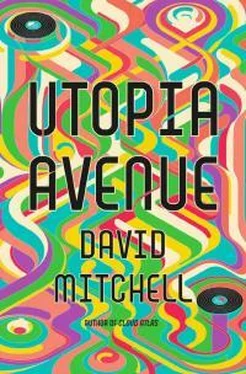

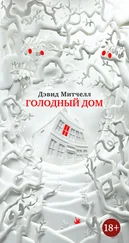
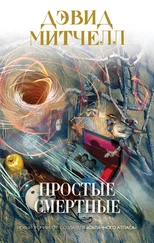

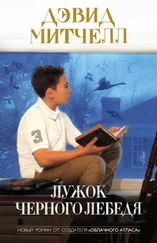
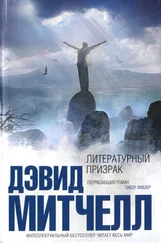
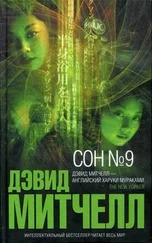
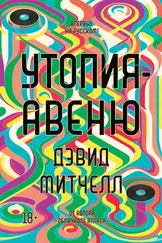
![Дэвид Митчелл - Под знаком черного лебедя [= Лужок черного лебедя]](/books/395644/devid-mitchell-pod-znakom-chernogo-lebedya-luzhok-ch-thumb.webp)
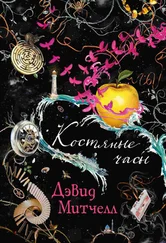
![Дэвид Митчелл - Литературный призрак [litres]](/books/432859/devid-mitchell-literaturnyj-prizrak-litres-thumb.webp)
